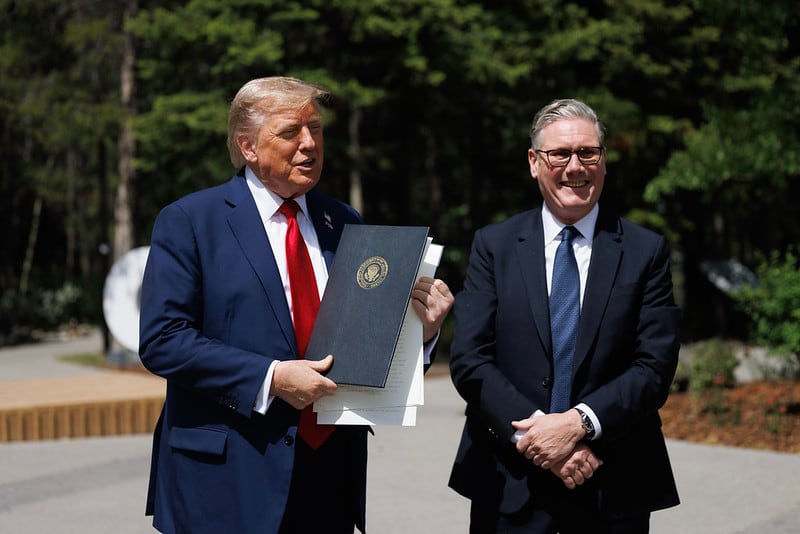Few could argue with quadrupling access to export finance, increased efficiency via digitalising services and paperwork, supporting developing economies and removing non-tariff barriers – key aspects of the 100-page UK Trade Strategy.
However, launching the strategy last week, the UK prime minister boasted to the British Chambers of Commerce of a ‘hat trick’ of deals clinched for the UK with India, the US and the EU.
The UK-US deal
In reality, the UK’s deal with the US – announced on 8 May – was a deal ‘in principle’. The detail was still to be determined. The 25% tariffs on steel exports to the US remain unresolved. And while the starter gun has been fired on the 13,000t reciprocal quota on beef imports and exports, it is still unclear if the US will fill all that significantly increased access with cheaper premium cuts. That would be a considerable blow to UK beef producers.
The status of pork and dairy exports are unclear. The UK Government has promised not to compromise UK producer standards by importing product that does not conform to them. But will it buckle in the face of lucrative offers to other industries? When it comes to security, the UK has a vested interest in maintaining the much-vaunted ‘special relationship’. Also, will US negotiators sneak fine print past UK officials?
India and UK FTA
Nor do we yet know what the Free Trade Agreement (FTA) with India will mean for UK dairy. As levy body AHDB says, during the FTA negotiations, the UK aimed to reduce India’s dairy tariffs or secure generous tariff rate quotas. However, reports indicate India excluded duty concessions on dairy from the final agreement to protect its domestic dairy industry. If there’s an absence of tariff reductions, UK dairy exporters will continue to face high tariffs, limiting the competitiveness of UK dairy products in the Indian market. There are already strong limitations on UK pork, beef and lamb exports to India, so for Provision Trade Federation (PTF) members, this deal promises little. Final details are expected in the next few weeks.
UK-EU SPS deal
Finally, in the UK-EU Sanitary and Phytosanitary (SPS) deal (spot the recurring theme), we have a commitment to thrash out a deal (a Common Understanding), rather than the elements of an agreement.
If the SPS agreement achieves government and industry wishes, it would hugely boost UK and EU food industries. Export Health Certificates would be scrapped on both sides, slashing vet and paperwork costs. SPS border inspections would be largely eliminated, cutting inspection costs and border delays. Small to medium-sized food exporters could restart trade previously abandoned with the EU. Further packaging and processing currently curtailed under triangular trade restrictions would be revived on both sides of the Channel.
These things would add millions to revenues. But whereas leaders in the Commission and the UK Government were referring in May to finalising matters in weeks, the PTF understands talk now is of resolution in years. Given the prospect of further raw material inflation, national insurance and wage increases, Extended Producer Responsibility (EPR) fees for packaging waste and packaging tax rises hitting food firms this year, the receding benefits of the SPS agreement don’t look great.
Jumping the gun
In summary, we have some fine aspirations, which could all be derailed by other major developments in an uncertain world. This is the backdrop to the Government’s Trade Strategy. Claiming victories before the ink has even dampened the page is a little like boasting about getting a job directly after a positive first interview.
What business needs is a detailed direction of travel – aspirations plus strategy and tactics – and objectives met. Anything else risks overpromising and underdelivering, perpetuating uncertainty and eroding trust.

